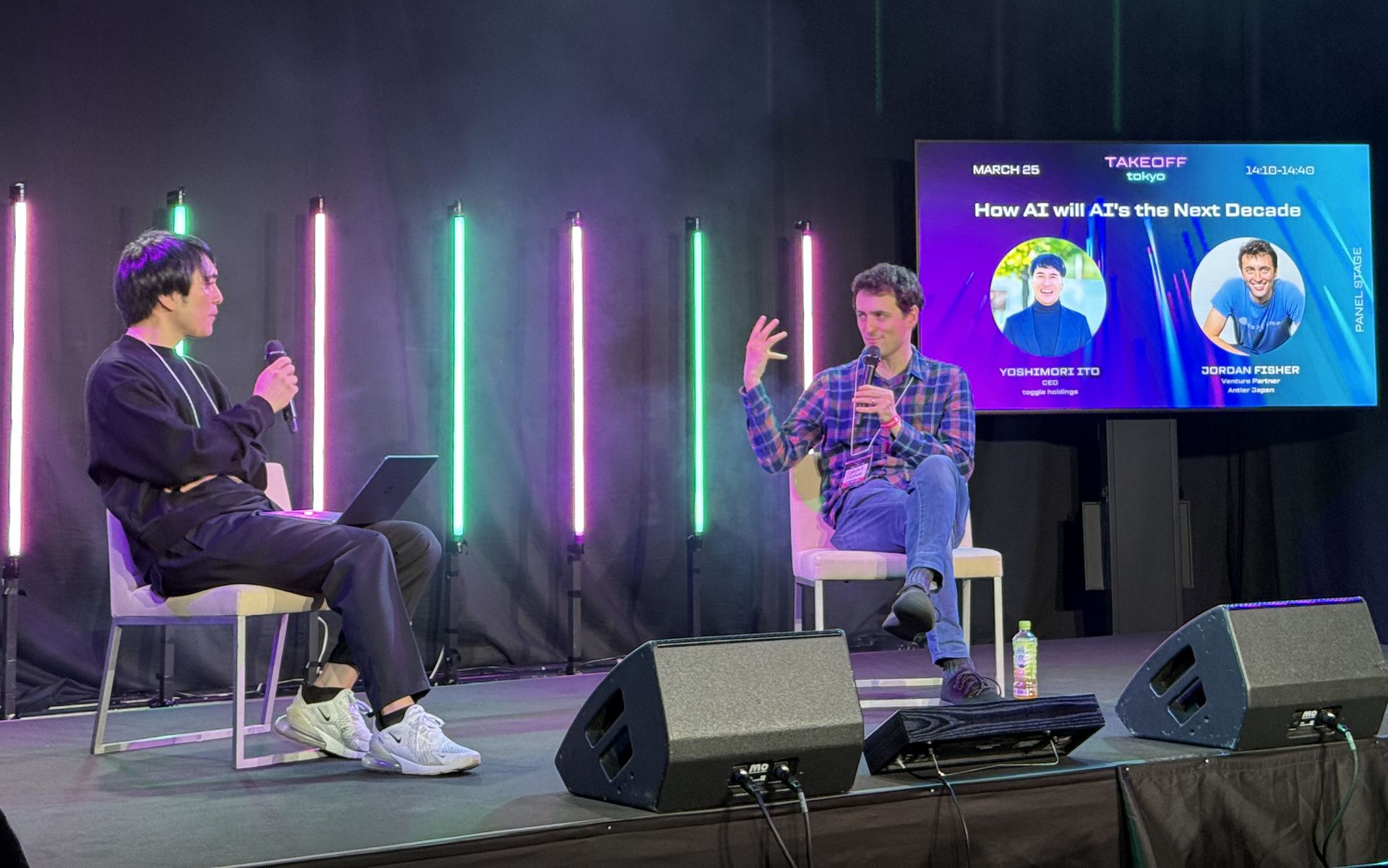Dataconomy attended the insightful session “How AI Will AI’s the Next Decade” at Takeoff Tokyo, moderated by Jordan Fisher, Venture Partner of Antler Japan, and featuring Yoshimori Ito, CEO of Itandi. The discussion highlighted how artificial intelligence will dramatically influence industries, economies, and societies in the upcoming decade.
Capturing conversations for AI
The session began with a compelling discussion about the practical integration of AI within businesses. Yoshimori Ito shared that some companies are actively recording internal conversations, particularly within management layers, to harness data-driven insights. “We record management conversations to capture internal knowledge and improve operational efficiency,” said Ito, emphasizing the increasing value companies place on internal data for strategic decision-making.
The complexity of domain-specific AI solutions
A notable insight was the development of specialized internal APIs tailored to specific business needs, such as generating floor plans and conducting market research in real estate. Ito noted, “Generalized AI tools like those from OpenAI cannot fully address our unique business requirements, so we develop deep-domain solutions ourselves.” This illustrates a broader trend where businesses are increasingly turning to highly targeted, proprietary AI technologies.
Balancing innovation and market readiness
Despite having innovative internal solutions, Jordan Fisher advised caution about prematurely expanding or open-sourcing these technologies. “Industries are slow to adopt new technology,” Fisher noted, adding, “Companies need to focus internally first to secure efficiency and competitive advantages.” However, Fisher did acknowledge that “opening these solutions to broader use could be possible within the next three to five years, once internal systems mature.”

Predicting AI’s societal impact
The panelists foresaw significant societal impacts driven by AI, especially in the real estate sector. Yoshimori Ito remarked, “AI could completely transform the real estate industry through automation, but widespread practical adoption may lag behind technological advancements.”
Additionally, concerns around AI-induced wealth disparities were prominent. Ito predicted substantial rises in real estate values in major cities like Tokyo, Paris, and New York. “Real estate values in these major cities could increase tenfold over the next decade, driven by those who can leverage AI’s economic advantages,” he stated, highlighting a potential widening of the wealth gap.
Practical insights from entrepreneurs
The speakers shared personal experiences integrating AI into their businesses. Jordan Fisher, actively involved in local service industries, described AI’s potential to bridge productivity gaps. “AI can democratize business capabilities, enabling small businesses to enhance operational efficiency significantly,” he shared, pointing to traditionally technologically-lagging sectors like home improvement services.
The session also highlighted that certain jobs, considered resistant to automation, such as plumbing, could substantially benefit from AI-supported platforms. Fisher emphasized, “AI can significantly boost productivity in every aspect of a plumber’s business, except the physical task itself. This creates hybrid models where AI complements rather than replaces human jobs.”
The panel concluded by affirming the transformative potential of AI over the next decade. Fisher summarized, “Technological capabilities will rapidly advance, but societal and industry-wide adoption may take longer, shaping a nuanced trajectory for AI’s impact.” Both Fisher and Ito stressed that navigating AI-driven growth would require careful consideration from businesses and policymakers to manage potential socioeconomic disparities.




